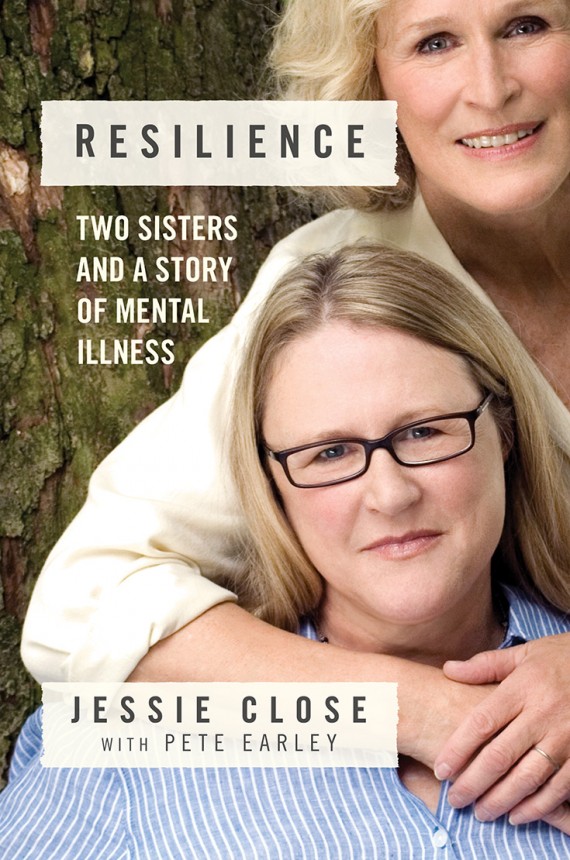
10-20-14 The first review of RESILIENCE, the memoir that I helped Jessie Close write, has appeared and it’s complimentary.
The reviewer calls the book, “an honest tale” and notes that Jessie “holds nothing back.”
“The author candidly discusses her multiple marriages and her continued inability to understand her alternating manic and depressive states, which appear to have escalated in intensity with age. It was only when her son, Calen, was hospitalized and eventually diagnosed with schizophrenia that Close began to look more seriously at her own extreme mood cycles and seek permanent help to stop her abusive drinking and to silence the voice in her head that insisted she kill herself. With the help of her sister and family, Close was able to afford good treatment for herself and her son, and Close’s sister went on to establish the nonprofit organization Bring Change 2 Mind, which targets the stigma and misunderstanding surrounding mental disorders.
The critic concludes, “the book is packed with emotion and courageous personal reflections.”
That’s heady praise from a critic whose job is, well, to criticize. But the review did contain one tiny barb.
The critic wrote that our book got off to a slow start because we spent a few initial pages explaining Jessie’s lineage. The reason why we included her lineage is because one of her relatives had a serious mental illness that went untreated –a nugget we felt needed to be explained – but a connection the critic failed to grasp.
The fact that I was bothered by the critic’s one jab in an otherwise flattering review prompted me to think about how I handle criticism. And that thought eventually caused me to wonder about how someone with a serious mental illness deals with a voice inside their head that is constantly criticizing them.
I have interviewed dozens of men and women who are hearing voices. I’ve never met anyone who heard a voice praising them. Jessie is a good example. When she was manic, the voice in her head was telling her to kill herself.
We describe this in the opening paragraph of RESILIENCE:
“Kill yourself! Kill yourself! Kill yourself!”
I couldn’t stop the voice. It was struck in my skull like a bad song, playing over and over and over again.
“Kill yourself! Kill yourself! Kill yourself!”
Those commands were being screamed at me by the Creature. It was pure evil. It was in my head, just behind my left ear. It was terrifying. Worse, it would not stop screaming.”
I once asked a friend, who is black and grew up in the South, how he overcame the racial slurs and attacks aimed at him. He said the criticism didn’t bother him because he didn’t respect the racists attacking him. The opinions that mattered to him came from his family and members of his church.
Thinking of the creature in Jessie’s head and how my friend had overcome racist attacks as a young boy gave me perspective. It also reminded me that it takes courage, if you have a serious mental illness and are hearing voices, to not let them destroy you.
One way we can help someone who is hearing destructive voices (in addition to traditional treatments, such as medication) is to provide them with a supportive environment that counters those screams in their head. We need to be the “church members” and the “family” that tells them the negative thoughts in their heads are unmerited.
We need to be the voices that they hear.
RESILIENCE goes on sale January 15th.



